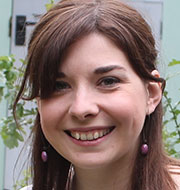 One of my personal goals this year was to become more tech savvy and engage with social media. I already had a Facebook account. I even had a Twitter account, but felt my interest was, well, quite shallow as I basically used it to hear the occasional ponderings of my old teenage heartthrobs.
One of my personal goals this year was to become more tech savvy and engage with social media. I already had a Facebook account. I even had a Twitter account, but felt my interest was, well, quite shallow as I basically used it to hear the occasional ponderings of my old teenage heartthrobs.
So, imagine my delight when I read how much serious good can be done with this technology. In her feature, Meg Carter reports how Twitter may have helped Nigeria contain Ebola. Through the campaign @EbolaAlert, Lawal Bakare, a Nigerian dentist, shared information with 76 000 followers, connecting them with public health advice from the World Health Organization.
The piece also highlights the responsibility that comes with tweeting, providing a stark warning when false messaging overtakes an otherwise good intentioned campaign. One such hoax tweet was encouraging Nigerians to drink large volumes of salt water, with potentially devastating consequences. This has since encouraged organisations and campaigners to engage in two way communication with social media.
Having signed up to more, shall we say, intellectual Twitter accounts I felt quite connected. Surely now I would read more widely and become a font of knowledge on important social issues. However, as Jacqui Wise reported yesterday, using Facebook and Twitter to promote medical articles does not necessarily increase the number of times they are viewed. In a study from the journal Circulation, there was no difference in page views between two randomised groups of articles: one group which had received targeted social media, and the other which received standard promotion upon publication. There are limitations to the study, but it does raise the question of what we actually do with all the information we are now privy to?
Matthew Limb’s news article on the response to making mortality data for surgeons publicly available highlights how difficult it can be to unpick the numbers, and understand their significance. Sir Bruce Keogh, national medical director, defended the concept as a “step forward in NHS transparency,” while John MacFie, president of the Federation of Surgical Specialty Associations, is worried “patients might suffer because of it,” with young doctors loathe to take on some higher risk cases under the threat of being ranked and having to justify their performance without context.
Doctors and patients are increasingly interpreting information together. As the number of clinical conditions increase, and their treatments change, it can be hard to keep up. The latest clinical review on Crohn’s disease is a great update on the management of this condition.
It is clear information is available everywhere and people are hungry to share more. However, how you follow it, like it, share it, or use it is up to you.
Follow The BMJ on @bmj_lastest
Emma Parish is editorial registrar, The BMJ. You can follow her on Twitter at @ejparish
I have read and understood BMJ policy on declaration of interests and declare no competing interests.
